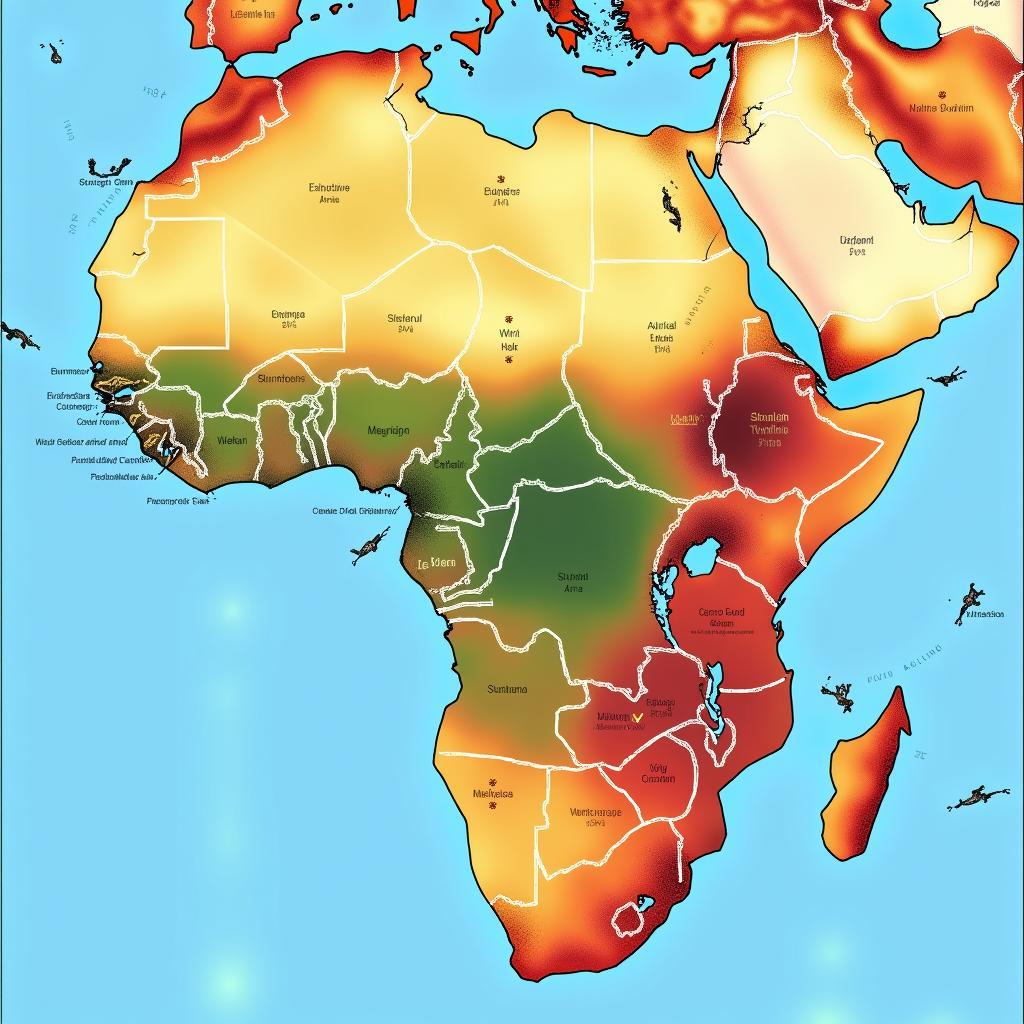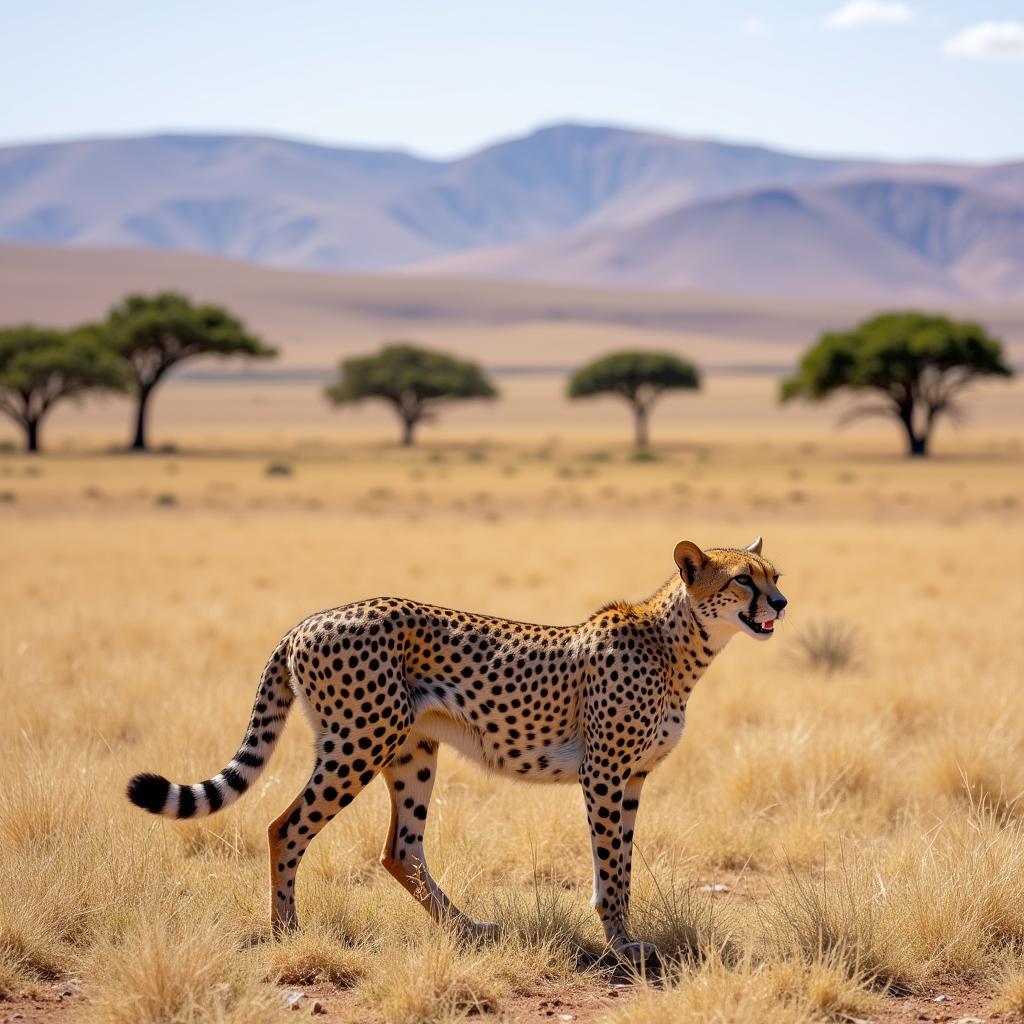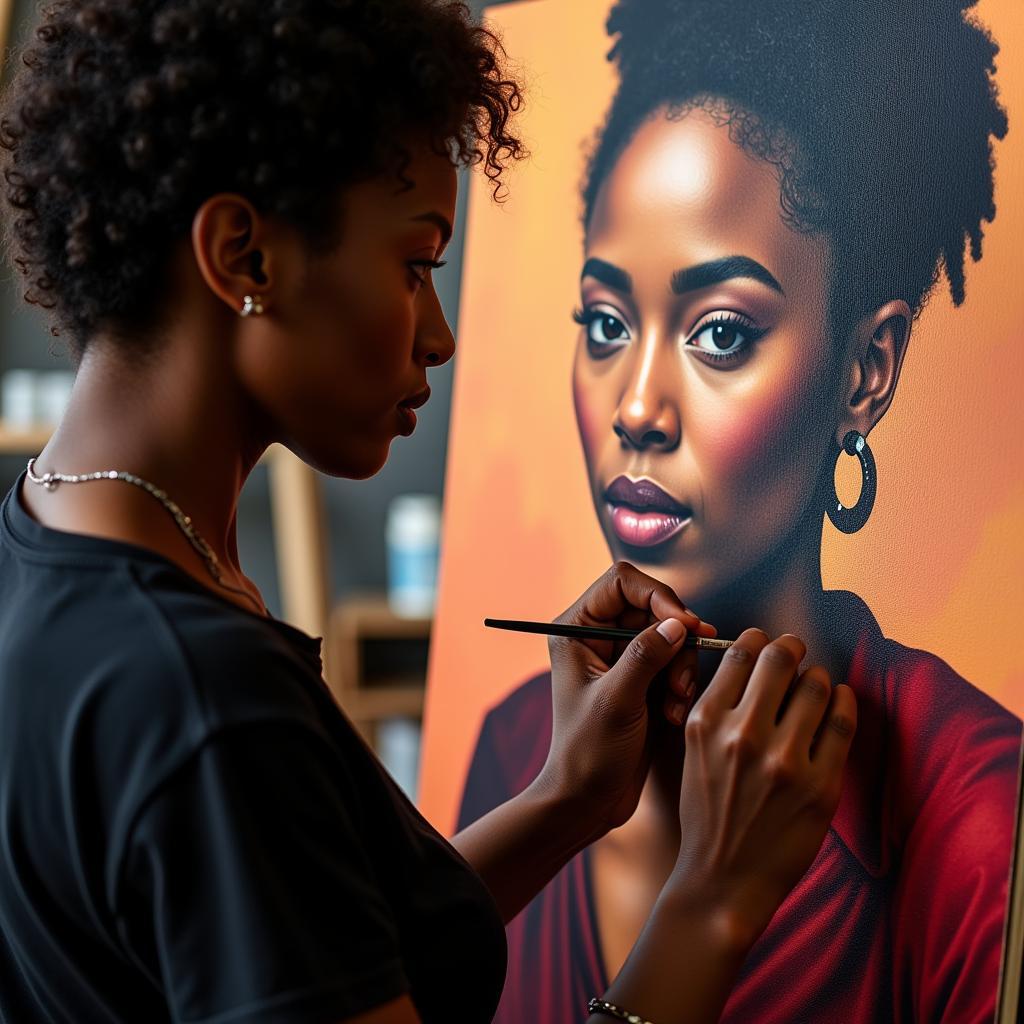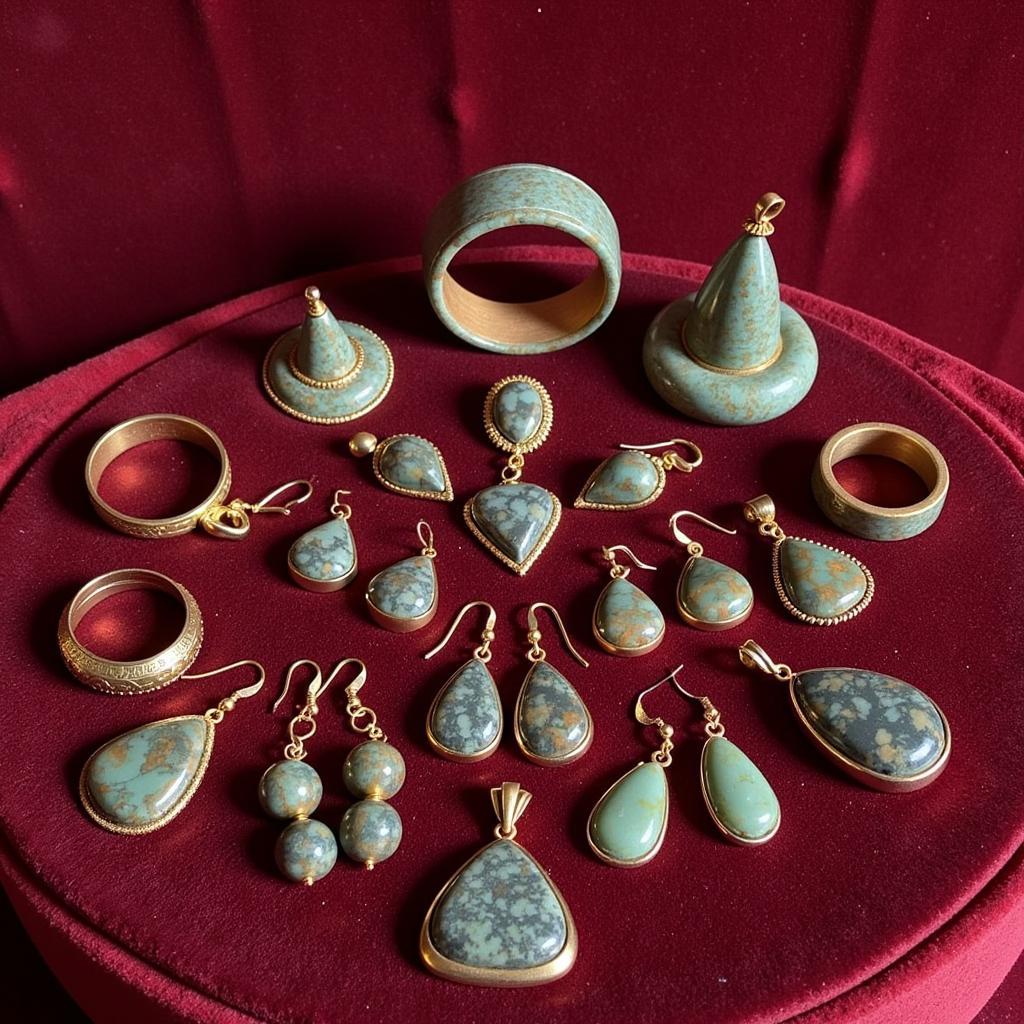The African Djembe: A Journey into Rhythm and Culture
The African djembe, with its distinctive goblet shape and vibrant sound, is much more than just a drum. It’s a powerful symbol of African culture, a storyteller, a healer, and a unifying force that brings people together through the universal language of music.
From Sacred Rituals to Global Stages: The History of the Djembe
The djembe’s roots lie deep in West African history. Believed to have originated in Mali over a thousand years ago, the djembe played a central role in the cultural life of the Mandinka people. Traditionally crafted by skilled artisans from a single piece of hardwood and goatskin, the djembe was more than just a musical instrument. It was a sacred object, used in rituals, ceremonies, and as a form of communication across vast distances.
The Djembe’s Journey Across Continents
Over the centuries, the djembe’s mesmerizing rhythms transcended geographical boundaries. As trade routes expanded and cultural exchange flourished, the djembe found its way to new lands, captivating hearts and minds along the way. By the mid-20th century, the djembe began to appear on global stages, captivating audiences with its powerful sound and infectious energy.
Understanding the Language of the Djembe: More Than Meets the Ear
Djembe music is not just about hitting a drum; it’s about communicating through rhythm, tone, and energy. Each strike of the hand produces a distinct sound, and when combined with other percussive instruments, creates complex polyrhythms that weave a rich tapestry of sound.
The Three Basic Djembe Sounds
Mastering the djembe involves learning to produce three fundamental sounds:
- Bass: A deep, resonant tone produced by striking the center of the drum with the whole hand.
- Tone: A clear, bell-like sound created by striking the edge of the drum with the fingers held together.
- Slap: A high-pitched, sharp sound produced by striking the edge of the drum with the fingertips.
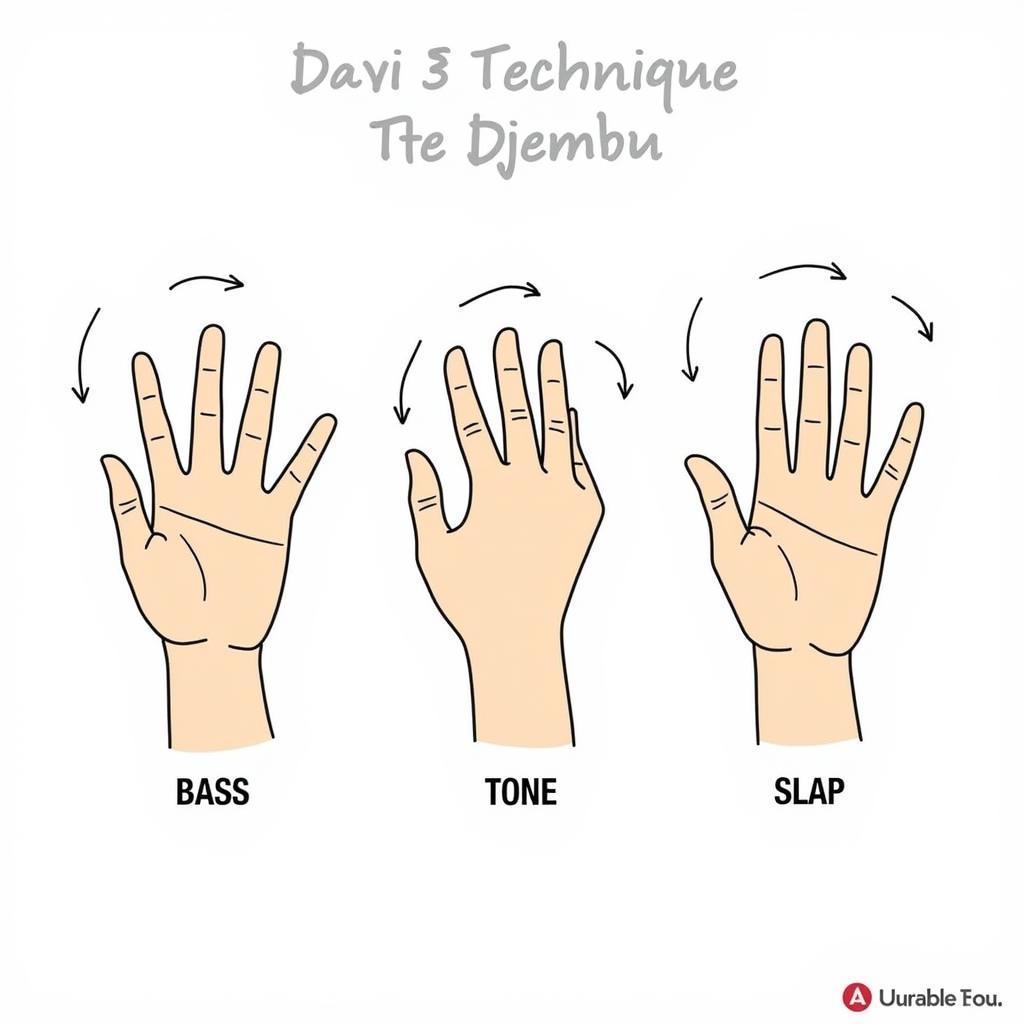 African Djembe Drum Techniques
African Djembe Drum Techniques
Djembe Ensembles: A Symphony of Rhythms
Djembe music often involves ensembles of drummers, each playing interlocking rhythms that complement and build upon each other. The lead drummer, known as the djembefola, guides the group, improvising rhythms and leading the musical conversation.
“The djembe is like a heartbeat. It’s the rhythm of life, the pulse of the earth. When you play the djembe, you connect to something ancient and powerful.” – Mamady Keita, renowned djembe master.
Experiencing the Magic of Djembe Music
The allure of the djembe extends far beyond its captivating sound. It’s an instrument that invites participation, fostering a sense of community and shared experience.
Djembe Classes and Workshops: A Gateway to African Culture
Djembe classes and workshops offer a wonderful opportunity to immerse oneself in the world of African drumming. Whether you’re a complete beginner or an experienced musician, these interactive sessions provide a supportive environment to learn basic techniques, explore different rhythms, and experience the joy of playing together.
[african drum photos]
Djembe Festivals: Celebrating Rhythm and Heritage
Across the globe, djembe festivals bring together renowned djembe masters, passionate students, and music lovers to celebrate the rich heritage of this iconic instrument. From the heart of Africa to bustling cities worldwide, these festivals offer a vibrant tapestry of performances, workshops, and cultural exchanges.
The Enduring Legacy of the African Djembe
The African djembe continues to captivate and inspire people from all walks of life. Its rhythmic pulse resonates with something deep within us, connecting us to a rich cultural heritage and reminding us of the power of music to unite, heal, and uplift.
As you listen to the captivating rhythms of the djembe, remember that you’re experiencing more than just music. You’re connecting with a vibrant tapestry of history, tradition, and the enduring spirit of Africa.
FAQ:
1. What is the best way to learn to play the djembe?
The best way to learn is through in-person classes with an experienced teacher. This allows for personalized instruction and feedback on technique.
2. What is the significance of the djembe in African culture?
The djembe holds deep cultural and spiritual significance in West Africa, used in ceremonies, rituals, and as a form of communication.
3. Where can I buy a good quality djembe?
Look for reputable music stores or online retailers specializing in world instruments. Ensure the djembe is crafted from quality materials and produces a good sound.
4. What other instruments are commonly played with the djembe?
Other percussive instruments like the dunun (bass drums), shekere (gourd shaker), and balafon (wooden xylophone) often accompany the djembe.
5. Are there different sizes of djembes?
Yes, djembes come in various sizes, with larger drums producing lower tones and smaller drums yielding higher pitches.
You might also be interested in:
- [african festivals in trinidad]
- [african jungle music mp3 download]
Need help? Contact us!
We are here to help you with all your African music needs.
- Phone: +255768904061
- Email: kaka.mag@gmail.com
- Address: Mbarali DC Mawindi, Kangaga, Tanzania
Our customer care team is available 24/7.
